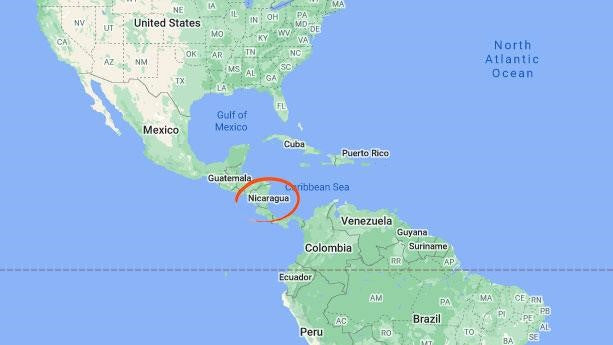Buy Nicaraguan coffee online
Published Date:
Nicaraguan coffee is known among experts and daily drinkers alike as one of the most competitive coffees globally for its good quality and complex flavours, which are very balanced and easy to drink. The country climate and geography are great for cultivating coffee, producing excellent harvest every year and if you’re looking to buy Nicaraguan coffee online, you’ve come to the right place.
Buy Nicaraguan coffee
The local economy relies a lot on coffee production, pushing for constant improvements in Nicaragua’s coffee growing regions along with better processing stations that make beans from this origin comparable to the high quality coffees from neighbouring country Costa Rica.
If you’re used to Central American coffees such as from El Salvador or Honduras you’ll find both relatively milder coffees compared to the most recent Nicaragua harvests.
One particularly great region for coffee in Nicaragua is the San Juan Del Rio Coco region. It is from the excellent farm La Guadalupana in this region that Portfolio sources its Nicaraguan coffee. These beans produce a drink that is nutty with floral tasting notes, creamy, has medium acidity, and long aftertaste.
Most coffee from this country have a distinguished aroma of sweet caramel, citrus, and chocolate elements, while the coffee itself can have a very pleasant and balanced flavour. Specific flavours can vary from mild fruitiness, citrus, and floral, to hints of chocolate with a toasty or nutty finish.

Fun fact: coffee was introduced to Catholic Missionaries in the 1790’s with the first commercial plantations taking place in Managua.
An overwhelming majority of 95% of all coffee produced in Nicaragua is considered shade-grown which is is a form of the crop produced from coffee plants grown under a canopy of trees. Coffee plants naturally grow and thrive in the shade as it usually means it’s been grown in its natural setting.
Another characteristic of Nicaraguan coffee is that it is grown at altitudes between 3600 and 5250 feet above sea level. Though there are some lower regions as well, most Nicaraguan coffee is classified as “high grown” and meets the Strictly High Grown coffee specifications.
Harvesting usually happens between the months of October and February or March. While wet washing is the most popular way to process Nicaraguan beans, others are being used as well.
Conclusion
Coffee subscriptions play a significant role in connecting coffee enthusiasts with Nicaraguan coffee. By subscribing to online services that specialize in delivering coffee, individuals can conveniently receive fresh and flavorful Nicaraguan beans directly to their doorsteps. This allows them to explore the unique characteristics of Nicaraguan coffee and expand their palate with the convenience of online shopping.
Additionally, the article underscores the importance of coffee stores in promoting and showcasing Nicaraguan coffee. These stores serve as hubs for coffee lovers to experience and learn about different coffee beans. By featuring Nicaraguan coffee, coffee stores provide customers with the opportunity to taste and appreciate the distinct flavors and aromas associated with this origin.
In the realm of specialty coffee, the article highlights the significance of coffee beans in shaping the overall coffee experience. Nicaraguan coffee, with its unique flavor profiles and regional distinctions, contributes to the diverse world of specialty coffee. By buying Nicaraguan coffee online, coffee enthusiasts can indulge in the exceptional flavors and support the coffee industry in Nicaragua.
In summary, the article on Portfolio Coffee's blog serves as a comprehensive guide for individuals interested in buying Nicaraguan coffee online. The accessibility and convenience of online shopping, coupled with the unique qualities of Nicaraguan coffee beans, make this origin a desirable choice for coffee wholesale businesses, coffee subscriptions, and coffee stores. By exploring the various avenues to purchase Nicaraguan coffee, individuals can experience the distinct flavors, contribute to the specialty coffee market, and support the coffee industry in Nicaragua.

 ALL
ALL

